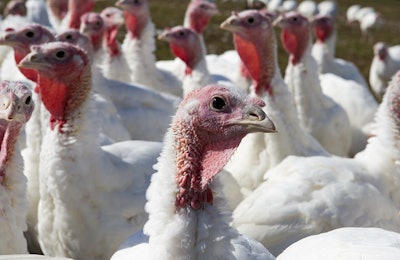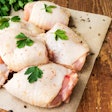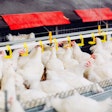
Scientists at the University of Minnesota are hard at work analyzing the makeup of the microbial community found in the guts of turkeys. The research could lead to a probiotic to help farmers keep flocks healthy without the use of antibiotics.
Antibiotic use has come under scrutiny in recent years. Antibiotic resistance – which occurs when bacteria develop the ability to defeat the drugs designed to kill them – can devastate flocks, affect the livelihood of farmers and make consumers sick if they eat the infected meat.
In addition, there is increasing consumer demand for antibiotic-free poultry meat.
Gut health may provide a solution
In the wild, turkeys form their gut microbiome– the collection of microorganisms present in the gastrointestinal tract – when they pick up bacteria from the shells of eggs as they hatch. In commercial settings, this initial exposure is often lost when eggs are disinfected to be kept clean.
Tim Johnson, PhD, an associate professor of veterinary and biomedical sciences in the University of Minnesota’s College of Veterinary Medicine, studied the microbiomes of over 10,000 healthy turkeys. To do this, they analyzed the bacterial makeup of turkey litter as well as randomized samples taken from the cecum and ilium of euthanized birds.
Using this data, Johnson’s team identified a list of bacteria that were strongly associated with high-performing turkeys. Each species of bacteria is made up of thousands of strains, so for the next step, the researchers performed whole genome sequencing of the bacteria to understand which subgroups were most beneficial to the bird’s health.
“Our research was basically an upside-down pyramid of terms of starting very broadly and then trying to focus in,” Johnson explained. “We really wanted to understand what a healthy, well-performing turkey microbiome looks like compared to those that are having challenges.”
Customized probiotic treatment
He hopes to use this knowledge to develop a customized host-adapted probiotic that farmers could give to young turkeys in their water or even before they’re hatched, serving as an alternative to antibiotics.
“Our goal is to try to mimic the effects of growth-promoting or low dose antibiotics in an effort to try to at least have alternatives so that we can do some of the same good effects on the gut and on performance there have been observed for many years with those antibiotics,” Johnson said.
Like what you just read? Sign up now for free to receive the Poultry Future Newslette


















